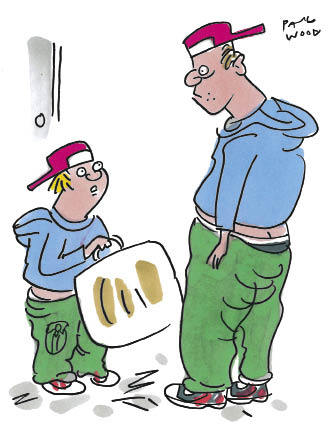Martin Vander Weyer’s Any Other Business
I’m standing on a hot platform at Tottenham Court Road, waiting for the relief of the momentary breeze that precedes an approaching train. I’m staring at a T-Mobile poster featuring people dressed as nuns at what looks like a karaoke party. And I’m thinking: do I really want to write another essay about the imagined pain of cuts to come, or the right way to regulate banks, or the prospects for growth in 2013-14? And more important, in a heat wave and a mood of post-World Cup gloom, do you really want to read one? Then the air moves, the train rattles in, and I see that it’s bound for the High Barnet terminus of the Northern Line. And the mission of Any Other Business for this week comes to me: I must find the Stone Parlour.
This will take a bit of explaining, but bear with me: I hope you’ll think it’s worthwhile. Every family has a private vocabulary, and in mine a ‘Stone Parlour’ is a place of enforced contemplation. Thus if my dog Douglas misbehaves when we visit my mother — chases her cat up the stairs, for example — he is ordered into the Stone Parlour, which means he is shut in the porch until his hangdog expression suggests that he’s ready to repent of his sins.
The original Stone Parlour was a bare cell reserved for precisely the same purpose at St Martha’s Convent Junior School in Barnet, which I attended half a century ago, between the ages of four and six. It had a crucifix on the wall, perhaps a single wooden chair, and a window from which the solitary miscreant could see in the distance the playground from which he had been banished.
Being a relatively diligent little chap, I was only occasionally incarcerated.









Comments
Join the debate for just £1 a month
Be part of the conversation with other Spectator readers by getting your first three months for £3.
UNLOCK ACCESS Just £1 a monthAlready a subscriber? Log in